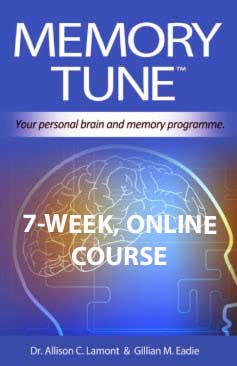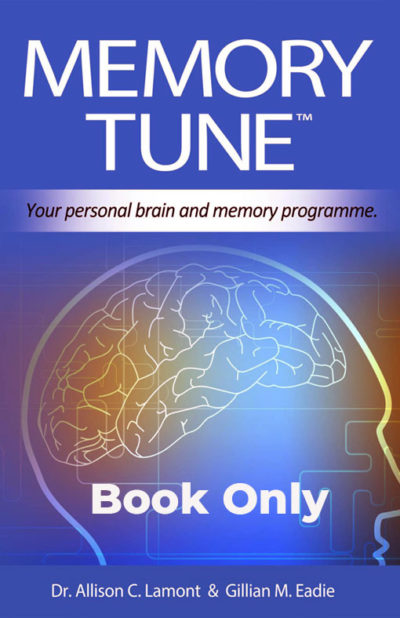Are cognition and memory the same?
Your cognition is tested when you need to renew your driving licence. Why?

Test yourself on these five questions.
1. Cognition is another word for memory.
True or False?
False. Although cognition includes memory, it also refers to the mental functions involved in attention, thinking, understanding, learning, solving problems, and making decisions. Cognition is a fundamental aspect of an individual’s ability to carry out activities, accomplish goals, and successfully engage with the world.
2. Cognitive ageing is not the same as dementia or Alzheimer’s disease
True or False?
True. Cognitive ageing is not a disease or a quantifiable level of function, and it does not inevitably lead to dementia or Alzheimer’s disease. Just like other parts of the body, the human brain changes with age, both in its physical structures and in its ability to carry out various functions.
3. At what age in life does cognitive ageing typically begin?
A. It begins at birth and continues throughout the life span
B. After age 35
C. After age 50
D. After age 65
What age in life?
A. It begins at birth and continues throughout the lifespan. Although the effects of cognitive ageing are often most visible later in life, cognitive ageing is a lifelong process that occurs in every individual regardless of initial cognitive function. The types and rates of change can vary widely among individuals.
4. It is possible to promote and support cognitive health and adapt to changes in cognitive function.
True or False?
True. Numerous factors may affect cognitive abilities, including genetics, physical activity and other lifestyle choices, traumatic brain injury, sleep quality, health conditions, acute illness, and medications. Some of these factors may be modifiable to support cognitive health. Experience, education, expertise, and support strategies (such as memory strategies) can help compensate for declines in cognition.
5. Which of the following actions are supported by evidence for promoting cognitive health?
A. Staying physically active
B. Reducing and managing cardiovascular risk factors
C. Regularly reviewing medications and supplements with a clinician
D. All of the above
Your choice?
D. All of the above. There is evidence that staying physically active, reducing and managing cardiovascular risk factors (such as hypertension, diabetes, and smoking), and reviewing health conditions and medications that may affect cognition with your health care provider can help maintain cognitive health across the life span. The Institute of Medicine committee did not find strong evidence that taking vitamins, supplements or medications that were advertised to improve memory had positive effects on cognitive health.
And about cognition and that driving test?
Driving is a complex task involving coordinating several mental and physical abilities. Some of the muscle-memory actions become almost automatic but adapting to the changing conditions around you (traffic lights, oncoming traffic, distractions inside and outside the car, road conditions) requires complex brain processing. Your cognitive skills are critical to safe driving.
We can improve the way we think and recall by implementing the memory strategies you’ll find in 7-Day Brain Boost Plan.
If you would like a more comprehensive coverage of definitions of cognition, this Wikipedia page delves into the subject more thoroughly.
(Source of quiz contents: National Academies of Science, Engineering and Medicine)





Interesting Quiz. I managed to get 4 questions correct after failing number one.
I would probably have failed others but once the word ‘cognitive’ was defined, ‘logic’ kicked in and thus the answers were able to be reasonably worked out!!!
Gillian & Allison, your teaching and presentation skills were always first rate and you continue to bring valuable, fresh challenges, and, knowledgeable information to your followers. I have no doubt that you are helping a great many people through your innovative and interesting program. Thank you.
A very informative article thank you
Extremely interesting and informative
That was interesting and useful
Thank you, Gerald. We appreciate your comments very much. As you know, all that we do for Memory Foundation is voluntary and it is heart-warming to know our efforts are helping others. Well done on the ‘test’!!
I always enjoy the quiz’s and feel very happy within when I get them right
I liked the question No 3 as I understand that from the moment we are born we begin to die even though some of us can live to be very old. Thank you all I think I did very well in the quiz
Well done! It is important to know that the way we live our lives makes a huge difference when we are older.
As always I enjoy youremails and news and information . GREAT .
THANKS Debbie
Thank you all for your support and comments. They mean such a lot to us, particularly as it means so many of you are making the effort to keep your brain and memory alert and working well for you.
I too like question 3. That was new information as I always thought that our body including cognitive function deteriorates after about 20 years. Thank you for the clear explanation.
Thanks for keeping us engaged and thinking about our cognitive “lives”. The more we understand the better we can ,manage our cognitive aging. Your articles build that understanding and keep us reminded about steps for maintaining cognitive health and memory. Thank you
We appreciate your feedback! Look for a new brain challenge every day ……..
Well done again Gillian. As you say it is pretty basic. Forget the supplements, take moderate exercise, and drink plenty of water.
Very true – and don’t forget a brain challenge every day!!
Gillian. Great Keep it up. On holiday, now home. Challenge daily, by asking, passing information, forever learning .
I am over 90 and did appreciate the information. While suffering memory problems a geriatricion recently told me I did not have dementia so your information helped me.Bill Tate
Thank you so much. I’ll be sharing this information with my younger colleagues. I’m trying to eliminate ‘senior moment’ from their vocabulary!
I find it very strange that cognitive aging should start at birth, whereas much of the body (including the brain, we are told) is still clearly undergoing development. What is so special about leaving the womb that this aspect of the brain should start deteriorating at that point?
That was a great quiz. I am so pleased I got all the questions right. I did go back to the beginning of the article to understand the meaning of ‘ cognitive health’ which was good to know. Thanks.
I totally concur with this aim! Staff members with more experience bring so much to organisations – creation and retention of institutional memory, increased productivity, decreased turnover and increased loyalty. I will send you some suggestions for creating a brain-friendly work environment which might help your cause, also.
You are not alone in this belief and as neuroscience continues to research the brain and memory, new discoveries are made. Cognitive changes do not necessarily mean deterioration. Current thinking is that cognitive abilities are always changing and reacting to the environment in which an individual lives. A baby in utero develops around 250,000 neurons every minute – astonishing when you consider current thinking is that as adults we activate about 1400 a day. What happens to the baby after birth will greatly influence how the cognitive skills develop. Does that help?
Cognition is a term you hear often and I’m so glad this quiz helped your understanding.
Hi Gillian, I would really like go do your quizzes, but do find it hard to know just when to enter answers to sections of the email
Hello Joy, I quite understand! For these ones, you just note down your answer yourself and check by clicking the box underneath the question. You check your won answers and really, the quiz is just a bit of fun to see if you know the answers. I hope you will enjoy our next one, too.